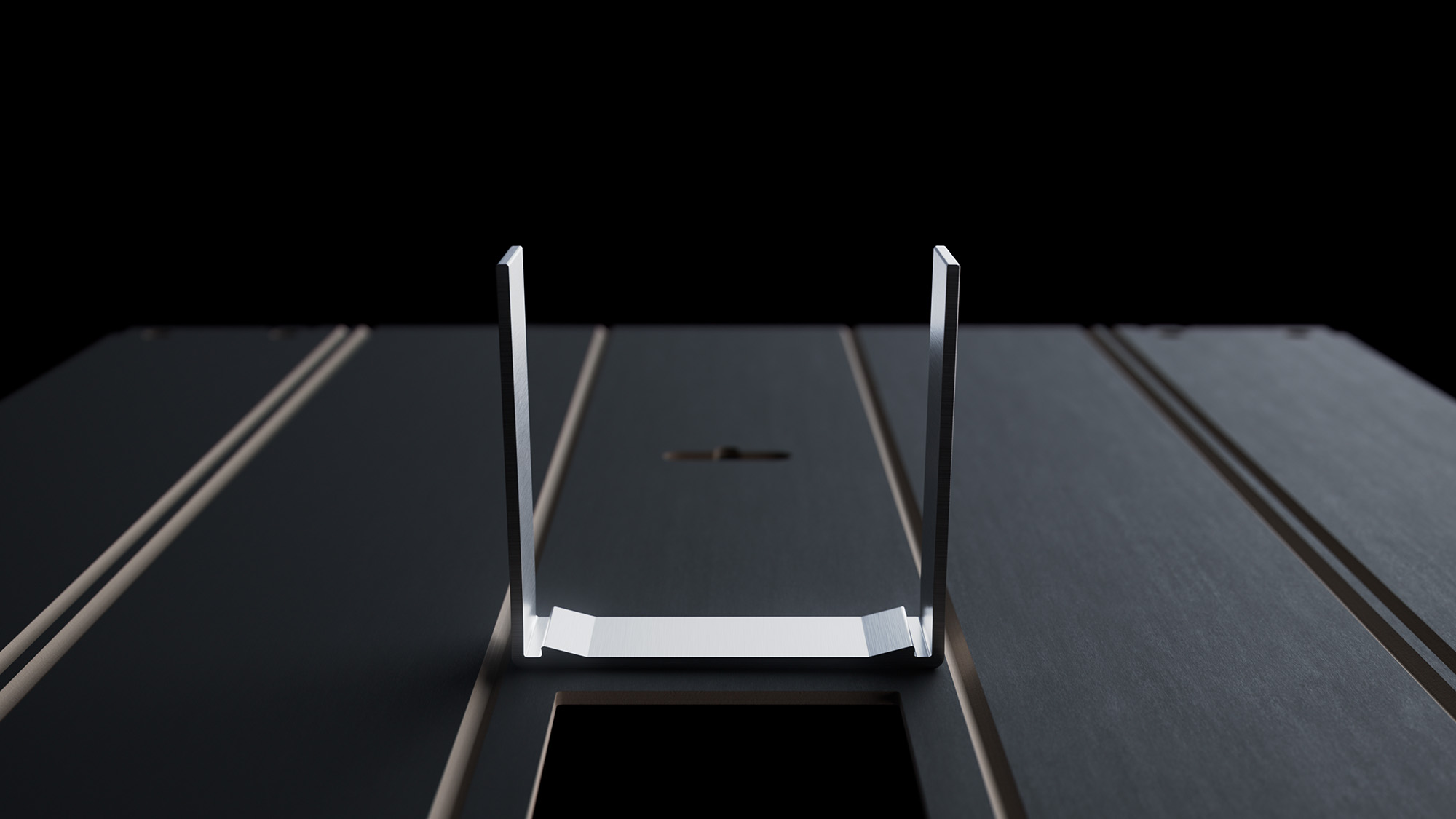
Das Material macht’s – Wrapped präsentiert einen neuen Ansatz für nachhaltige Beleuchtung
In einer Welt, in der jedes Gramm Material und jedes Gramm Kohlendioxid zählt, präsentiert sich Wrapped nicht nur als Leuchte sondern als Statement. Bei der bisher nachhaltigsten Pendelleuchte von Fagerhult wurde nichts dem Zufall überlassen. Jedes Detail, jedes Material, jede Lösung wurde ganz bewusst ausgewählt.
Nachhaltigkeit beginnt oft mit einer einfachen Frage: Woraus besteht ein Produkt? Bei Wrapped ist es ein Trio, und jedes Material hat in puncto Umwelt eine eigene Geschichte.
Solid Board – ein bekannter, alter Freund
Fagerhult hat Solid Board erstmals 2021 für Multilume Re:Think eingesetzt. Bei Wrapped sind wir allerdings noch einen Schritt weiter gegangen. Das Material besteht aus einer dreilagigen Konstruktion mit einem zu 100 % recycelten Kern, einer erneuerbaren, FSC-zertifizierten Deckschicht und einer dünnen Kunststoffschutzfolie. So entsteht ein Material, das insgesamt zu 65% recycelt ist und die CO₂-Emissionen im Vergleich zu fabrikneuem stranggepresstem Aluminium um 89% reduziert.
Wrapped besteht aus Bio-Vollpappe, recyceltem Aluminium und recyceltem Kunststoff.
Kunststoff neu denken
Wenn es um Nachhaltigkeit geht, ist Kunststoff häufig ein brisantes Thema. Aber Plastik ist nicht gleich Plastik. Für Wrapped wird recycelter Post-Consumer-Kunststoff verwendet. Im Gegensatz zu Pre-Consumer-Kunststoff, der noch nie in Gebrauch war, hat PCR-Plastik bereits ein Leben als Shampooflasche oder Lebensmittelverpackung hinter sich.
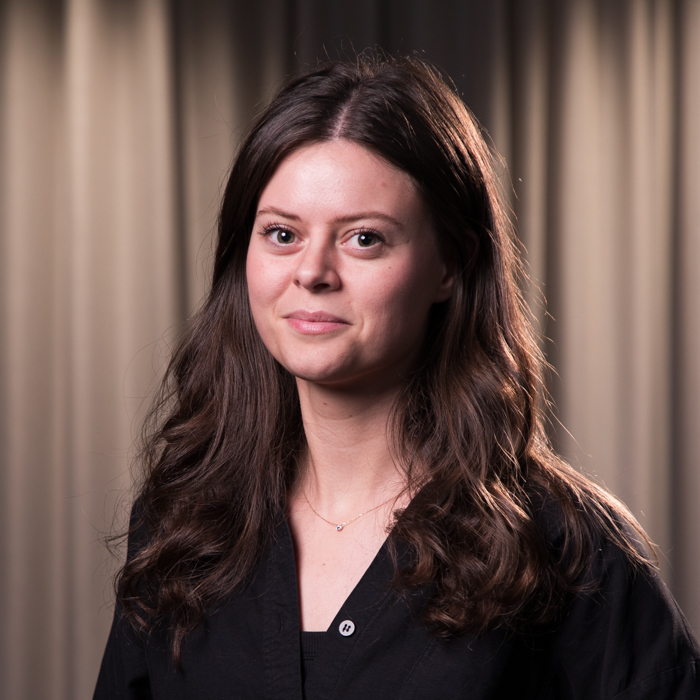 „Durch den Einsatz von Post-Consumer-Kunststoff in gleichwertiger Qualität haben wir die Klimabelastung um 56 % reduziert. Ein kleiner Baustein, der aber große Aussagekraft hat.“ Josefin Carlsson, Expertin für Nachhaltigkeit bei Fagerhult
„Durch den Einsatz von Post-Consumer-Kunststoff in gleichwertiger Qualität haben wir die Klimabelastung um 56 % reduziert. Ein kleiner Baustein, der aber große Aussagekraft hat.“ Josefin Carlsson, Expertin für Nachhaltigkeit bei Fagerhult
Aluminium mit Geschichte
Zwei strukturelle Bauteile im Inneren von Wrapped bestehen zu 100 % aus recyceltem Aluminium. Auch dieses Material ist Teil einer zirkulären Infrastruktur – und war vielleicht sogar einmal Teil einer Notor-Leuchte. Im Vergleich zu neu produziertem Aluminium reduziert diese Materialwahl die Emissionen um 83%.
Mehr mit weniger – Design für die Ewigkeit
Bei Nachhaltigkeit geht es nicht nur darum, was man verbraucht, sondern auch wie viel. Mit nur 900 mm ist Wrapped kürzer als eine herkömmliche 1200-mm-Pendelleuchte. Allein diese Reduzierung entlastet das Klima um 25 %, ohne die Lichtleistung der Leuchte zu beeinträchtigen.
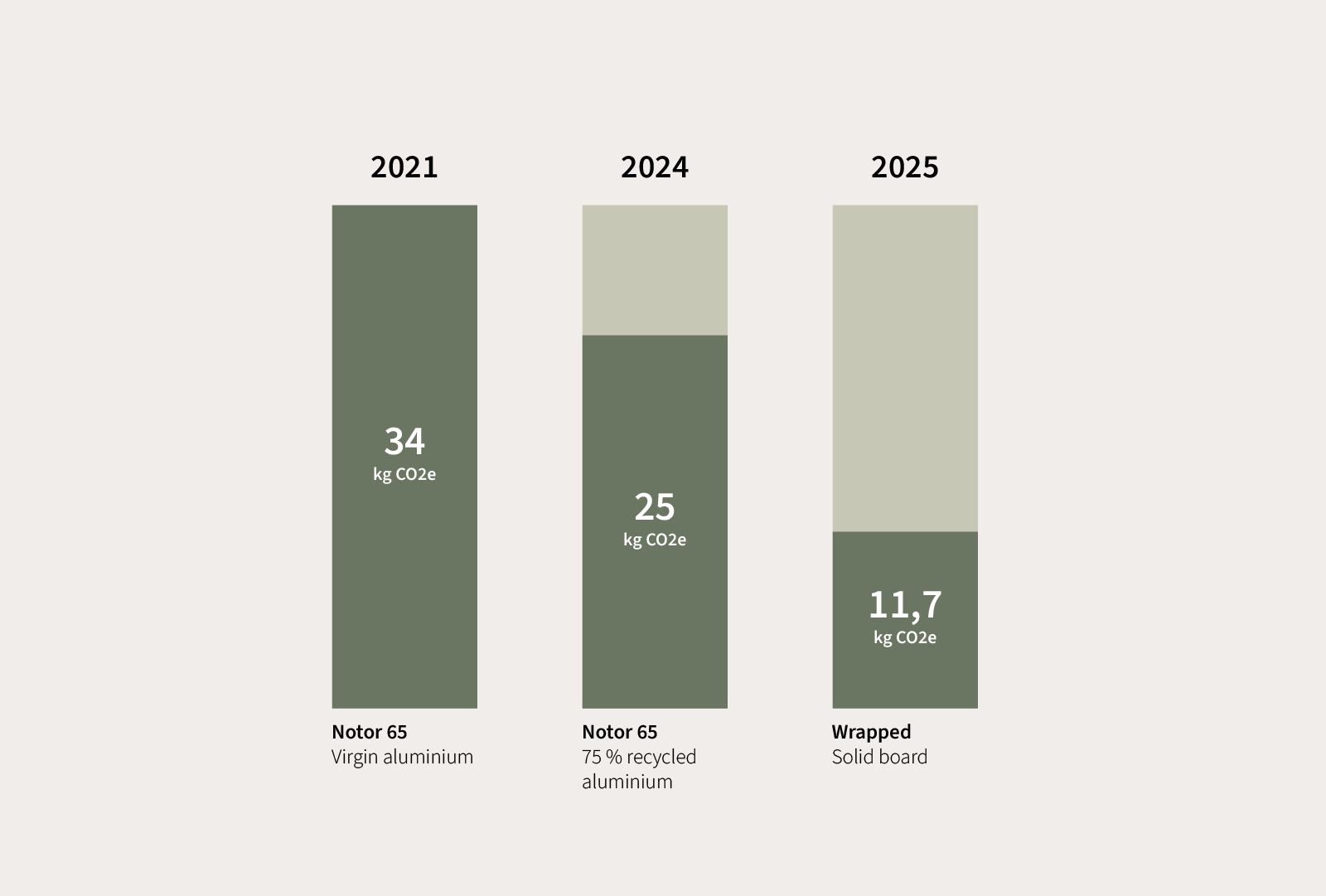
Im Fagerhult Experience Centre in Habo vergleicht Josefin Carlsson die Klimabelastung von Produkten.
Ein kurzer Blick in die Vergangenheit ermöglicht, die Auswirkungen von Wrapped besser einzuordnen.
- Im Jahr 2021 hatte Notor 65 – hergestellt aus fabrikneuem Aluminium – eine Klimabelastung von 34 kg CO₂e.
- Durch 75 % recyceltes Aluminium sank dieser Wert bis 2024 auf 25 kg CO₂e.
- Bei Wrapped liegt die Belastung heute nur noch bei rund 12 kg CO₂e.
„Das entspricht einem Drittel der Belastung der ursprünglichen Notor 65 und der Hälfte der aktuellen Version. Gemessen in Kilogramm CO₂e ist dies eine stille Revolution“, erklärt Josefin Carlsson.
Nach ihrer langen Lebensdauer – schätzungsweise 100.000 Stunden – ist Wrapped für einen ebenso nachhaltigen Abgang bereit. Mit ihrem Design ist die Leuchte leicht zerlegbar, wobei jedes Material recycelbar und für das nächste Kapitel in der Kreislaufwirtschaft vorbereitet ist.
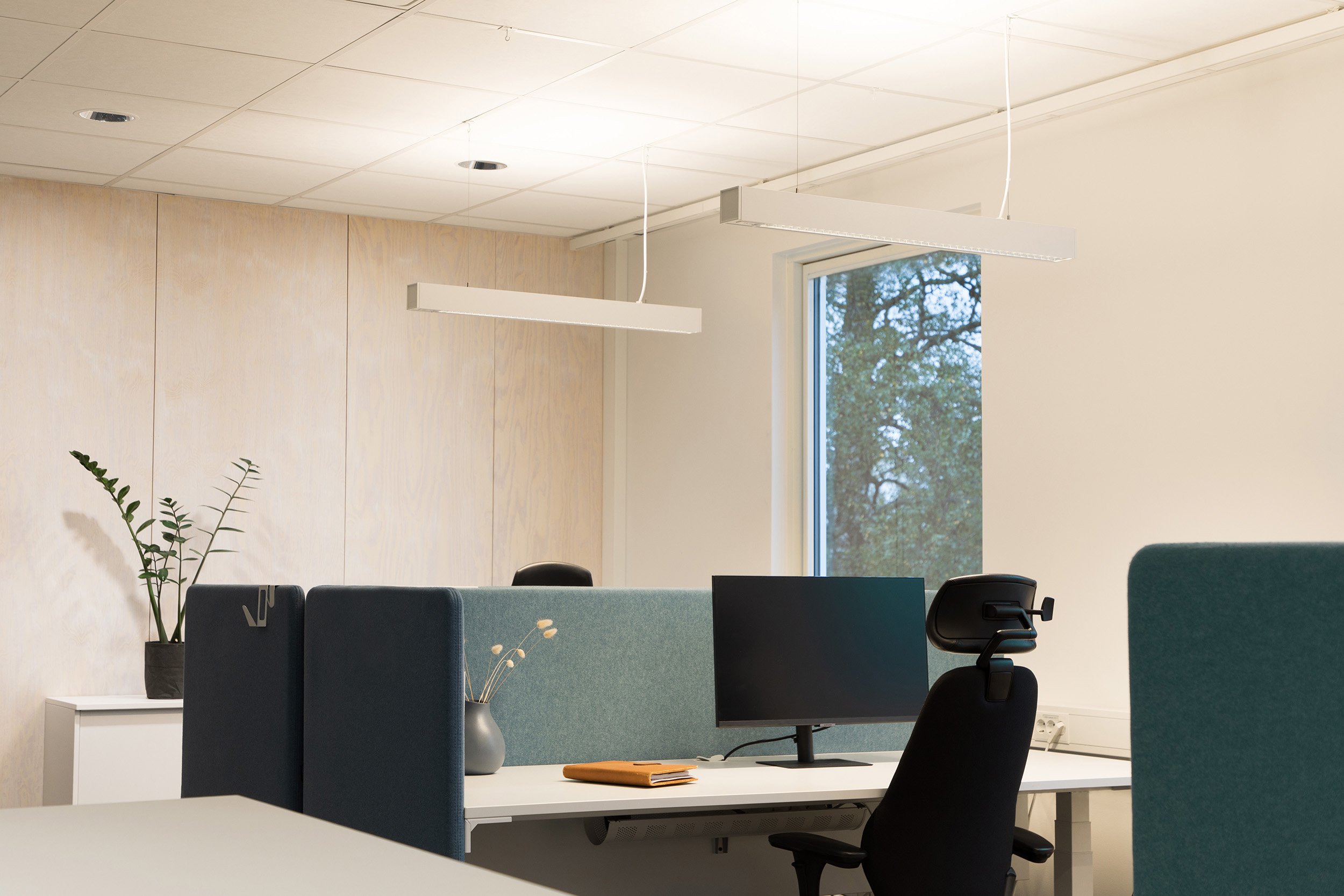
TEXT LINDA KARLSSON
FOTO DENNIS BOIJ / FAGERHULT
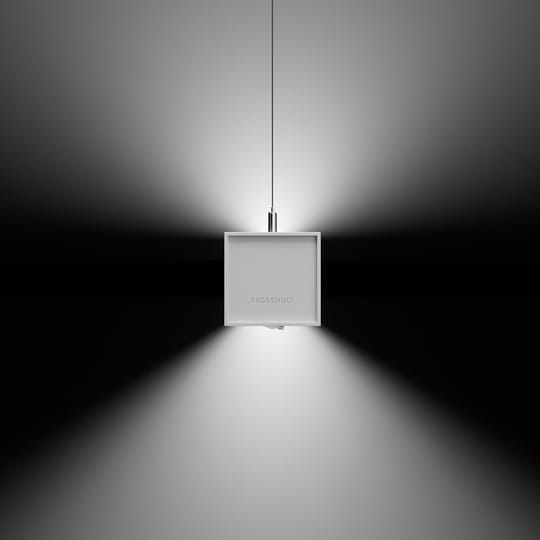
Möchten Sie mehr über Wrapped erfahren?
Wrapped verkörpert unsere Idee, Licht für eine hellere Zukunft zu schaffen, indem wir hochwertige – und nachhaltige – Beleuchtung leichter verfügbar machen.
Mehr erfahrenVerwandte Nachrichten

Fagerhult introduces the world’s first premium pendant luminaire made of cardboard
The new Fagerhult luminaire Wrapped is designed and made in Sweden – and combines premium lighting, high efficiency, and low weight with being the company’s most climate-friendly, premium luminaire to date.Wrapped’s luminaire body is made of organic recycled cardboard – Solid board – which has 89% less climate impact per kilogram than aluminium. The few details made of plastic and metal are also sourced from recycled post-consumer materials. The result is a pendant luminaire with minimised environmental impact throughout, without compromising on light quality or design. “By choosing Solid board, we’re stretching the idea that a pendant luminaire must be made of aluminium. We simply asked ourselves: Can we use another renewable and recycled material that is part of an established circular infrastructure?” says Christer Liljegren, Product Manager at Fagerhult.Sustainability meets affordabilityWrapped combines premium lighting performance with a favorable price point – and makes sustainable lighting solutions available to a wider audience. The lighter choice of material also enabled a total weight of 1.6 kilograms (Pendant, 900 mm).“I think the installers will appreciate Wrapped just as much as we do. It really is surprisingly light and easy to handle,” says Christer Liljegren.The launch includes Wrapped Pendant 900 mm. The low amount of material makes it a truly sustainable choice as it performs just as good as a general 1200 mm luminaire in many applications. It is available with the Beta Opti louvre and has a 50/50 direct and indirect light distribution – and maintains excellent visual ergonomics. The product family will be expanded with additional variants in 2026.Continuing a legacy of sustainable innovationWrapped builds on Fagerhult’s innovative work with sustainable materials, following the Multilume Re:Think (also made of Solid board) and the Kvisten wooden luminaire.“Wrapped embodies our idea of light for a brighter tomorrow – combining premium lighting with sustainability at an accessible level,” says Paula Backman, Product and Marketing Director at Fagerhult.
Fagerhult uses recycled aluminium for high-volume products — ensuring circular use of resources
With a focus on reducing its long-term greenhouse gas emissions, Fagerhult now choose extruded aluminium profiles containing 75% recycled material from end users. The material is used for product families manufactured and sold in larger volumes — and where the material can make a real difference. The initiative reduces Fagerhult’s climate footprint by approximately 225 tons of CO2e per year.Aluminium is a lightweight and durable material that can be reused multiple times if recycled properly. Its environmental impact depends on several factors, including whether it is made from virgin aluminium, how it is produced, whether fossil fuels or renewable energy sources were used in its production, and if it is derived from recycled materials.Niclas Thulin is Sustainability Manager at Fagerhult:“We are taking a significant step forward by moving from renewably sourced aluminium to recycled aluminium (post consumer). The Notor family – together with several other product families – is now made of extruded aluminium that is 75% recycled. This results in around 70% lower climate impact than the average impact from European primary aluminium and 88% lower than the global average for primary aluminium*.”The change affects products sold in larger volumes. The products Notor 65, Notor Recessed, Notor 36, Fjord, Vil, Multilume Hydro, and Sentra are now made of recycled aluminium.“We intentionally upgrade the materials for our larger product series because it significantly impacts Fagerhult's greenhouse gas emissions. For the Notor family alone, we used approximately 65 kilometres of aluminium profiles in 2024, and nearly all of this volume has now been replaced with recycled material,” says Niclas Thulin.The change is part of Fagerhult's systematic sustainability work and a considerable step in reducing greenhouse gas emissions in Scope 3: the company's indirect emissions from purchased materials. The Science Based Targets validate Fagerhult's climate targets, and the ambition is to achieve net zero emissions from the entire value chain by 2045.“This is our most important decision regarding materials, at least with reduced climate impact as the fundamental incentive. The majority of our emissions come from Scope 3, and through this change, we are making a difference where it has the greatest impact. Based on last year's volumes, the switch to recycled aluminium can reduce emissions by approximately 225 tons of carbon dioxide equivalents annually.”*Climate impact excluding the extrusion process. EPD compared to the European average for primary aluminium (European Aluminium) and the global average for primary aluminium (International Aluminium).
